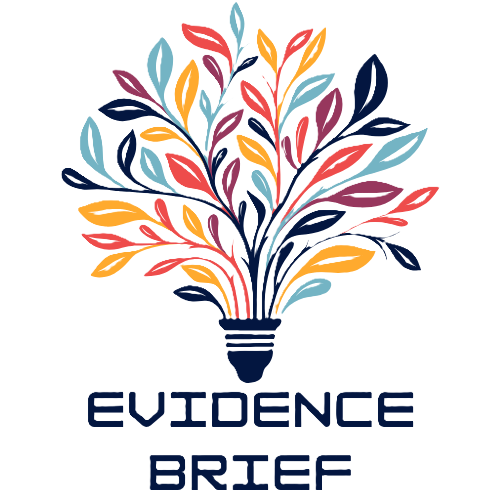Shaping young minds isn’t just about finger painting and storytime – it’s a rewarding career that requires specialized knowledge and training. A bachelor’s degree in early childhood education opens doors to becoming a qualified professional who can positively impact children’s lives during their most crucial developmental years.
Today’s educational landscape demands skilled educators who understand child development, learning theories and modern teaching methods. With a bachelor’s degree in early childhood education, aspiring teachers gain essential skills to create engaging learning environments and develop age-appropriate curricula. This program equips graduates with the credentials needed for state licensure while providing hands-on experience through student teaching opportunities.
What Is a Bachelor’s Degree in Early Childhood Education
A bachelor’s degree in early childhood education focuses on teaching methods for children from birth through age 8. This four-year undergraduate program combines theoretical knowledge with practical teaching experience.
Core coursework includes:
- Child development psychology
- Educational assessment techniques
- Classroom management strategies
- Curriculum design fundamentals
- Family engagement practices
The program structure features:
| Component | Duration | Focus Areas |
|---|---|---|
| Foundation Courses | 2 years | General education requirements |
| Major Courses | 1.5 years | Teaching methodology specialized courses |
| Student Teaching | 0.5 years | Supervised classroom experience |
Students learn essential skills through:
- Creating developmentally appropriate lesson plans
- Implementing research-based teaching strategies
- Applying behavior management techniques
- Using educational technology tools
- Conducting student assessments
Professional competencies gained include:
- Understanding diverse learning styles
- Adapting instruction for special needs students
- Communicating effectively with parents
- Managing classroom environments
- Developing literacy foundations
The degree meets state licensing requirements for teaching positions in:
- Public elementary schools
- Private educational institutions
- Head Start programs
- Childcare centers
- Preschool facilities
- State Departments of Education
- National Association for the Education of Young Children (NAEYC)
- Professional teaching organizations
- Educational accreditation bodies
- Early childhood education centers
Career Opportunities With an ECE Degree

A bachelor’s degree in early childhood education opens diverse career paths in educational settings. Graduates find employment opportunities in public schools, private institutions, childcare centers, and specialized learning facilities.
Teaching Positions
Early childhood education graduates qualify for licensed teaching positions in preschools, kindergartens, and elementary schools through grade 3. Lead teachers create age-appropriate curricula, assess student progress, and manage classroom activities in public school districts. Private school teachers develop specialized programs aligned with specific educational philosophies such as Montessori or Reggio Emilia. Head Start teachers focus on underserved communities, implementing federally funded early education programs. Teaching specialists work with English language learners, special needs students, or gifted children.
Administrative Roles
ECE degree holders advance into leadership positions as preschool directors, childcare center administrators, and program coordinators. Directors oversee staff hiring, training, and development while managing facility operations, budgets, and regulatory compliance. Program coordinators design curricula, establish policies, and maintain quality standards across multiple classrooms or locations. Education consultants partner with schools to improve teaching practices, implement new programs, and enhance learning outcomes.
Child Development Specialist
Child development specialists work in diverse settings including hospitals, social service agencies, and early intervention programs. These professionals assess developmental milestones, identify potential delays, and create intervention strategies for children ages 0-8. Specialists collaborate with families to support healthy development through customized activities, resources, and referrals. Behavioral specialists focus on social-emotional growth, helping children develop self-regulation skills and positive relationships. Early intervention specialists provide targeted support for children with developmental delays or disabilities.
Core Curriculum and Coursework
A bachelor’s degree in early childhood education encompasses comprehensive coursework designed to build expertise in child development, teaching methodologies and classroom leadership. The curriculum combines theoretical foundations with practical applications across multiple disciplines.
Child Development and Learning
Core developmental psychology courses explore cognitive, social, emotional and physical growth patterns in children from birth to age 8. Students examine brain development stages, motor skill progression and language acquisition milestones through evidence-based research. The coursework integrates theories from educational psychologists like Piaget, Vygotsky and Gardner to understand how children process information, develop social bonds and master new concepts. Learning assessment techniques focus on observation methods, developmental screening tools and progress monitoring strategies to track individual growth.
Teaching Methods and Strategies
Teaching methodology courses emphasize research-backed instructional approaches for early learners. Students master differentiated instruction techniques to accommodate diverse learning styles through hands-on activities, play-based learning and multi-sensory experiences. The curriculum covers phonemic awareness, emergent literacy strategies and early mathematics concepts using manipulatives and technology integration. Students learn to design developmentally appropriate lesson plans incorporating music, movement, art and structured play to engage young learners effectively.
Classroom Management
Effective classroom management training equips future educators with proven behavior guidance techniques and organizational systems. Students learn to establish consistent routines, implement positive discipline approaches and create optimal learning environments that promote self-regulation. The coursework addresses conflict resolution strategies, transition management techniques and methods for fostering emotional intelligence in young children. Practical components include designing classroom layouts, developing schedules and creating documentation systems to track student progress and communicate with families.
Field Experience Requirements
Early childhood education bachelor’s degree programs integrate hands-on field experiences throughout the curriculum. These practical components provide students with direct classroom exposure under experienced mentor teachers.
Student Teaching
Student teaching forms the capstone experience of an early childhood education program, lasting 12-16 weeks in partner schools. Teacher candidates work full-time in preschool or elementary classrooms, gradually taking on complete teaching responsibilities. They plan lessons, deliver instruction, assess student learning, communicate with families, and participate in school activities. Mentor teachers observe daily progress, provide feedback, and complete formal evaluations while university supervisors conduct 4-6 formal observations throughout the placement.
Practicum Hours
Practicum experiences begin in the second year with structured classroom observations totaling 100-200 hours across multiple settings. Students complete specific assignments focused on child development, teaching methods, and classroom management during each practicum placement. Field sites include Head Start programs, childcare centers, public schools, and specialized early learning environments. Teacher candidates document their hours, reflect on observations, and participate in small group teaching activities under supervision. These experiences occur before full student teaching to build classroom competency gradually.
Licensing and Certification
State licensing requirements mandate specific credentials for early childhood educators working in public schools. Each state’s Department of Education sets distinct licensing standards that include completing an accredited bachelor’s degree program passing required examinations obtaining student teaching experience.
The initial teaching license requires:
- Passing scores on Praxis Core Academic Skills tests
- Successful completion of Praxis II Content Knowledge exams
- Clean background check clearances
- CPR First Aid certification
- State-specific professional development hours
Professional certifications enhance career opportunities:
- Child Development Associate (CDA) credential
- National Board Certification in Early Childhood
- Association for Childhood Education International certification
- State-specific endorsements for special education or ESL
| Certification Type | Renewal Period | Required Hours |
|---|---|---|
| Initial License | 3-5 years | 90-180 PD hours |
| CDA Credential | 3 years | 45 training hours |
| NBPTS Certificate | 5 years | 100 PD hours |
Licensed educators maintain their credentials through:
- Documented professional development activities
- Continuing education coursework
- Teaching performance evaluations
- Portfolio submissions demonstrating competency
- Participation in mentoring programs
- Early intervention services
- Special education programs
- English language learning
- Gifted education programs
- Reading specialist roles
Program Formats and Duration
Bachelor’s degree programs in early childhood education offer flexible learning options to accommodate diverse student needs. Program completion times range from 36-48 months depending on the chosen format and course load.
On-Campus vs Online Options
Traditional on-campus programs provide face-to-face instruction with scheduled classes, immediate peer interaction, and direct access to faculty. Campus-based students gain hands-on experience through teaching labs and collaborative projects in physical classrooms. Online programs offer asynchronous learning through virtual platforms, allowing students to complete coursework on their schedule. Digital learners access recorded lectures, participate in discussion boards, and submit assignments through learning management systems. Many institutions offer hybrid formats combining online coursework with periodic campus visits for intensive workshops or practicum experiences. The field experience components remain consistent across all delivery methods, requiring students to complete student teaching in local schools regardless of the chosen format.
Accelerated Degree Programs
Accelerated programs enable students to complete their bachelor’s degree in early childhood education in 24-36 months. These intensive programs feature concentrated 8-week courses instead of traditional 16-week semesters. Students take year-round classes including summer terms to expedite degree completion. Prior learning assessments credit work experience or previous coursework toward degree requirements. Transfer credits from accredited institutions reduce completion time by up to 50%. Accelerated formats maintain academic rigor through focused study schedules requiring 15-20 hours weekly per course. Programs incorporate the same core curriculum content standards as traditional formats while streamlining general education requirements.
Conclusion
A bachelor’s degree in early childhood education stands as a cornerstone qualification for those dedicated to shaping young minds. This comprehensive program equips educators with essential skills and knowledge needed to create positive learning environments for children during their most formative years.
The degree opens doors to diverse career paths from classroom teaching to administrative roles while meeting state licensing requirements for public education positions. Through a blend of theoretical knowledge practical experience and specialized training graduates emerge ready to make meaningful impacts in various educational settings.
As the field continues to evolve qualified early childhood educators remain in high demand making this degree a valuable investment for those passionate about nurturing young learners’ development and setting the foundation for their lifelong educational journey.

